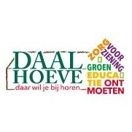New societal laboratories for citizen’s science about health and resilience.
In western countries, people go to professional health care if they suffer from physical or mental problems. However, professionals have limited expertise and financial resources and for help in case of disruptive experiences and diagnostic classifications and treatments tend to stress the problems instead of stimulating resilience and participation. Professional help often does not grasp the interdependence of headache or stomachache, loss, debts, relational issues, informal care etcetera. Medicalisation also produces stigma and shame. At the same time, experiential knowledge of citizens on how to remain resilient and on how to help each other is not actively used. In psychiatry, client knowledge is often limited by professional and institutional aims and boundaries. So, against this background this project aims to construct citizens knowledge about health in neighborhood everyday life. At two public spaces, owned by citizens and attracting many visitors – a meeting place in a mall and a children’s and care farm – they will develop different activities (working groups of experts if experiences, the human library, writing your life story, philosophy café etc.) and study how experiences about health are shared and how knowledge is produced. In other words, wthey will develop a new neighborhood ecology of care that functions as a societal laboratory of everyday life to construct knowledge about health in every life.
This study is carried out by a public-private consortium of experts of experience, neighborhood networks, a children and care farm, a mall and the university in LSES neighborhoods.
The study entails that they will collect data by making notes of fieldwork and observations, registering numbers of participants, transcribing interviews, keeping diaries etc.. The analysis of this data by the citizen’s researchers will be discussed in a broader group of experienced citizens, volunteers and university staff, to come up with robust interpretations.
This way wthis project aims to create fundamental new knowledge and new social technologies about social health and resilience that grasps and attunes to the complexities of everyday life and escapes of categories, classifications and boxes of institutions. They also will make clear how this new knowledge will stimulate participation and they will tentatively estimate the economic benefits of this knowledge.





